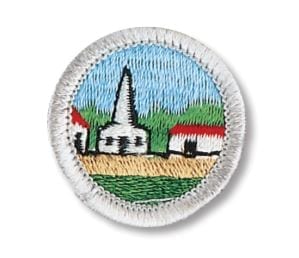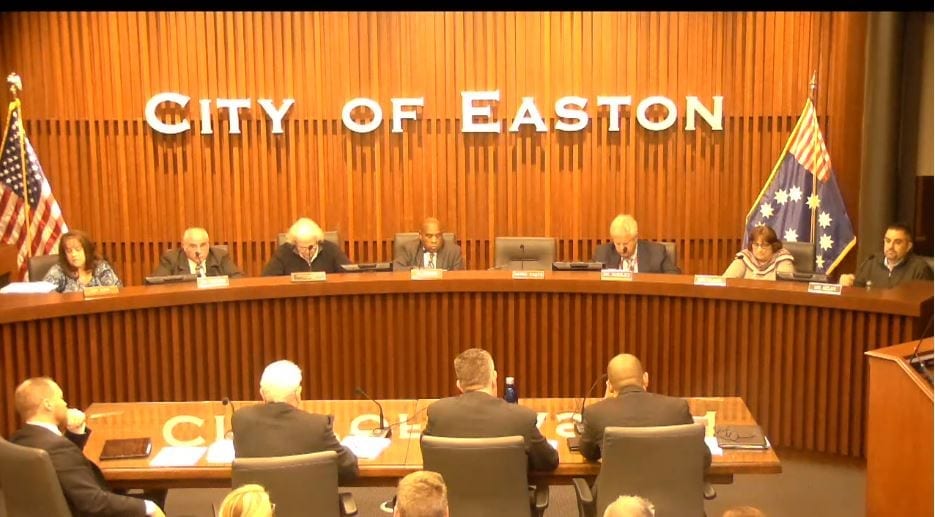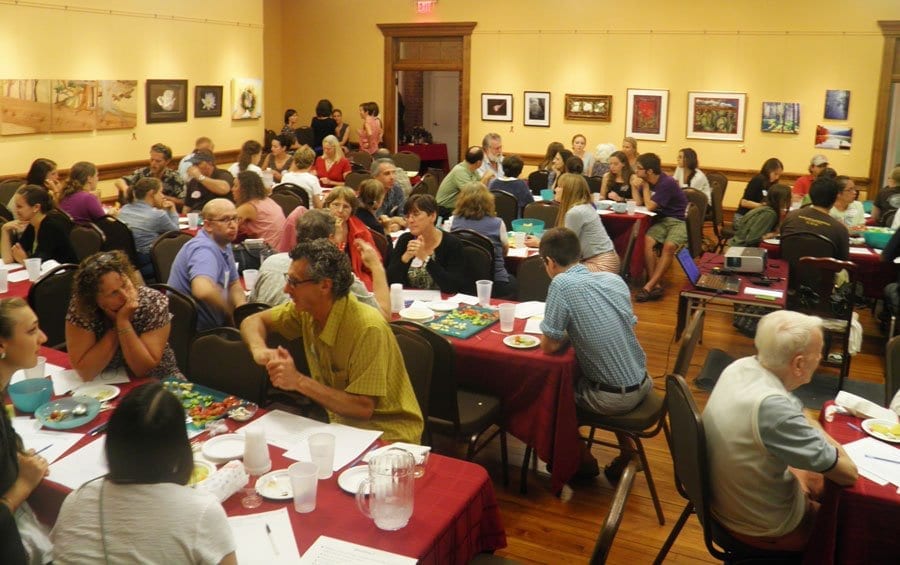At the end of February, nearly 50 Scouts will meet at Nurture Nature Center to discuss how to be a good citizen and demonstrate their knowledge of their communities to earn the Citizenship in the Community badge, a requirement for all Eagle Scouts.
 This badge reflects the importance of civics education, and led me to wonder how many non-Scouts know enough about their own communities that they could earn the Citizenship in the Community badge. Knowledge about your community allows you to identify what you can work on to improve quality of life there and how you can complete that work, whether through volunteering, serving as an elected official, or being an informed voter. Test your civic literacy with the questions below, which reflect some of the requirements for the Citizenship badge:
This badge reflects the importance of civics education, and led me to wonder how many non-Scouts know enough about their own communities that they could earn the Citizenship in the Community badge. Knowledge about your community allows you to identify what you can work on to improve quality of life there and how you can complete that work, whether through volunteering, serving as an elected official, or being an informed voter. Test your civic literacy with the questions below, which reflect some of the requirements for the Citizenship badge:
- Where are the important community places in your town? Can you locate government buildings (i.e. municipal building/city hall, public works facilities, etc.), the fire station, the police station, the nearest hospital, parks, recreation areas, and trails, and historical or other points of interest on a map?
- How are your municipal, county, and state governments structured? Who are your local officials? Which are elected and which are appointed?
- When are your local elections held? Where is your polling place?
- When was the last time you attended a local council or school board meeting? When are they? What issues are being discussed in these bodies, and where do you fall on those issues?
- What nonprofit or community organizations are active in your community? What sorts of activities do they do, and how can you get involved?
- Discuss some important and unique aspects of your community. What do you know about local history, cultures, and ethnic groups; where are some of the best features and popular places; and what are the main challenges the community faces?
If you found yourself stumped by any of these questions, you’re not alone. It can be confusing to understand how our own communities run – after all, in PA, there are thousands of municipalities including boroughs, unincorporated villages, different classes of counties, cities, and townships, and one town (Bloomsburg). Add to that school districts and various authorities (e.g. parking authorities or water authorities), and it can seem like a major task to even figure out who is responsible for issues that you’re interested in working on.

Still from the recording of the January 22, 2020 Easton City Council Meeting. Attending public meetings such as city council meetings will help you get your finger on the pulse of local government, and is a venue for contributing your own thoughts during public comment. Photo Source: https://www.easton-pa.com/city-council/pages/live-stream
A good first step can be to visit the websites of your county and local municipal government. Counties are responsible for “judicial administration, corrections and justice-related activities, community development, environmental planning, public health and safety, human services, elections, and real estate tax assessments” (WHYY). Local municipalities generally address zoning and codes, planning and land use, local police and fire departments, and local streets, sewer and water systems, and parks. You could also go to a municipal government meeting to learn who your elected and appointed officials are and how they address certain issues. Meeting times are typically available on government websites, and some municipalities are making council meetings available online via livestream for those who cannot attend in person. You may speak during the public comment period at any of these regular meetings and have your ideas and opinions considered by decision makers.
An even easier step might be to talk to other people in your community. Go to community events, ask others what organizations they’re involved in, and listen to what people are concerned about. A desire to do good in the community and improve everyone’s quality of life will go a long way, whether or not you know the details of every municipal ordinance. The more people who are involved in civic life, the better it can provide for the needs of all parts of a community. As an added benefit, engagement can help you develop new skills, connect you to a sense of community, and provide a way to make a difference in your own life and the lives of others.

